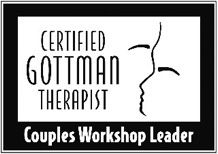Stop The Four Horseman
BLOG by Therapy2Thrive®
925-998-3392
Stop The Four Horseman From Running Over Your Relationship
That is why Dr. Gottman borrowed the Four Horsemen as a metaphor for four very important communication problems often seen in relationships that are in trouble. In relationship terms, the Four Horsemen are Criticism, Defensiveness, Contempt, and Stonewalling. When these come calling, the likelihood of relationship unhappiness and/or divorce skyrocket.
So, what are these Horsemen and, more importantly, what can we do to avoid them?
Criticism
Criticism is describing a problem as a flaw in your partner’s personality (“You are so lazy”) and often starts with “You always” or “You never.” “You never want to go out with me!” “You never help me around the house!”
You might ask, “Well, how am I supposed to talk about issues in the relationship, then?! Am I supposed to bottle it up?”
No!
Every relationship runs into the imperfections of each partner. Complaints are OK, issues are inevitable. It’s HOW we bring them up that’s important. That’s where what we call a GENTLE START-UP comes in. Try this formula: “I feel ___________ about __________. I need _________.”
So instead of calling your spouse a “lazy slob,” say something like, “I feel frustrated that the dishes aren’t done. I need some help in the kitchen.” This keeps the focus on yourself and what you need (as opposed to your partner’s flaws), and also gives your partner a way to shine for you!



Defensiveness
Defensiveness is an attempt to protect oneself, defend one’s innocence, or ward off a perceived attack. Defensiveness can be done by counter-attacking (criticize right back) or by whining (taking an innocent victim stance). You can see how Criticism and Defensiveness can be two sides to a coin. This kind of interaction can be described as an attack/defend pattern.
So, let’s take the above example. Your partner criticizes you by saying, “You never do the dishes because you’re so lazy!” You might respond with a defensive counterattack, “Well, you’re a slob because you always leave nasty hair in the tub!”
The antidote to Defensiveness? Accept responsibility for at least a small part of the problem. So even if your partner brings something up harshly, the interaction can be diffused if, instead of becoming defensive, you rally the herculean effort to remember to take some responsibility. Instead of, “Well, you’re a slob because you always leave nasty hair in the tub!” You might try something like, “You’re right, I didn’t do the dishes this morning. The dog escaped, and by the time I got him back in the yard, I had to rush off to work.
Contempt, the battery acid for a relationship.
Contempt, which is to put someone down and/or put yourself on a pedestal at the expense of another, is one of the best predictors of divorce all on its own. But along with criticism, defensiveness and stonewalling, contempt can predict almost certain doom for any relationship. Contempt has also been linked to predicting the number of infectious illnesses the recipient will experience over a four-year period. Powerful stuff, just like battery acid!
How to avoid being contemptuous toward your spouse:
- Avoid sarcasm (comments like, “I’ll bet you do!” or “Oh, that was super funny” in a snarky tone of voice).
- Avoid body language that often goes along with sarcasm or can simply stand alone as a response (rolling your eyes, smirking one side of your cheek into a dimple). These are actually cross cultural signals of contempt.
- Don’t make “jokes” at the expense of your partner, or make universal comments about his/her gender (again, usually accompanied by the gestures in #2).
Do instead:
- Keep the focus of your responses and interactions on yourself instead of on your partner, describing your own feelings and needs.
- Create a culture of appreciation in your relationship through positive interactions.
- Work on a positive habit of mind instead of scanning for the negative around you.
Stonewalling
The Fourth Horsemen is Stonewalling. This means that the listener withdraws from the interaction, though usually not by withdrawing physically from the room. This means not giving cues that he or she is listening (instead looks to the side, does not maintaining eye contact, or crosses one’s arms). When in response to Criticism, this can become a Demand/Withdrawal pattern. When interactions have not gone well for a long time, Stonewalling is more likely.
The antidote to this one? Self-soothe and stay connected in the interaction. Stonewalling often decreases when Criticism decreases and a couple begins to talk about issues in the relationship while reducing use of the first three of the Four Horsemen.
Conclusion
If you start to see the approach of the Four Horsemen in your relationship, take immediate action! Talk together about it and practice communicating without Criticism, Defensiveness, Contempt, and Stonewalling. If you need help getting started, or you run into roadblocks (communication habits can be hard to change without some support, especially if the Horsemen have been around a while), consider taking a workshop like “The Art and Science of Love Couples Workshop” or finding a therapist trained in helping couples reduce and eliminate the Four Horsemen. You can find workshops and therapists, along with other resources for couples, on the Gottman website: www.gottman.com.
Therapy2Thrive® brings Hope for Healing
Our counselors at Therapy2Thrive® provide compassionate, practical, and evidenced based practices to assist you in the therapeutic process to meet your goals and find hope to heal the challenges you are facing.
Contact our family counselor in Pleasanton for private consultation.
